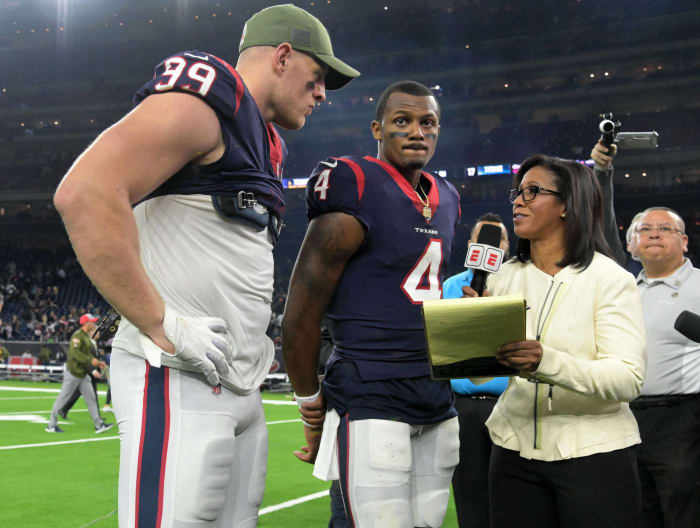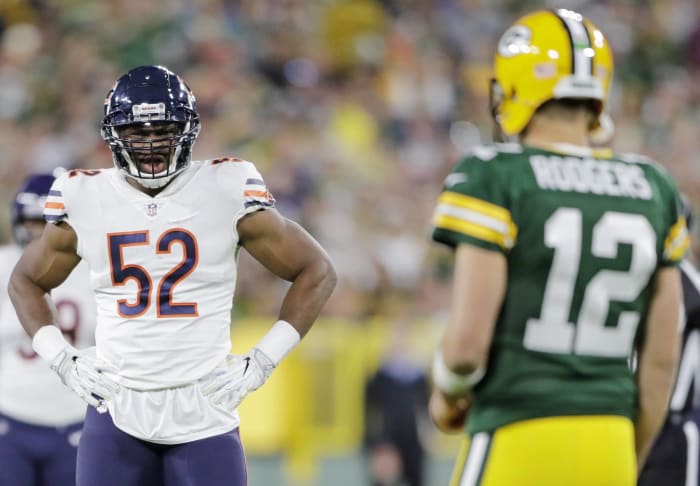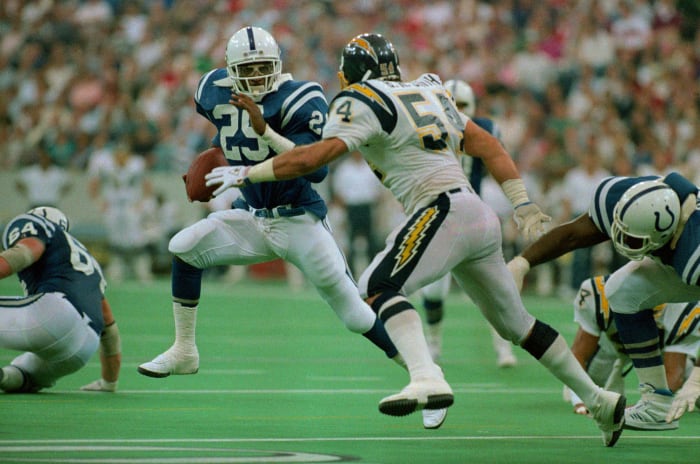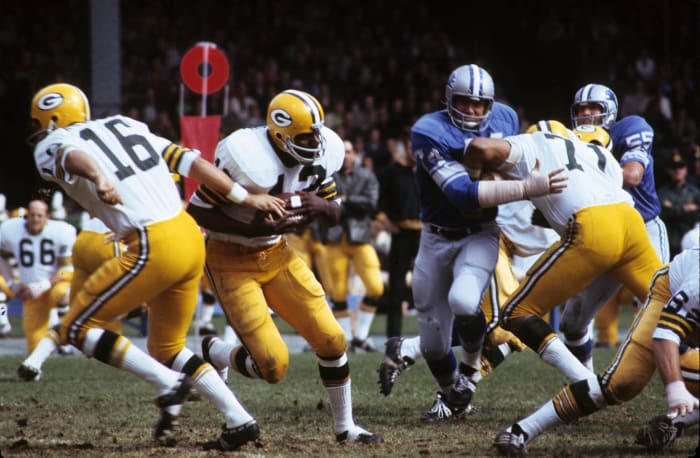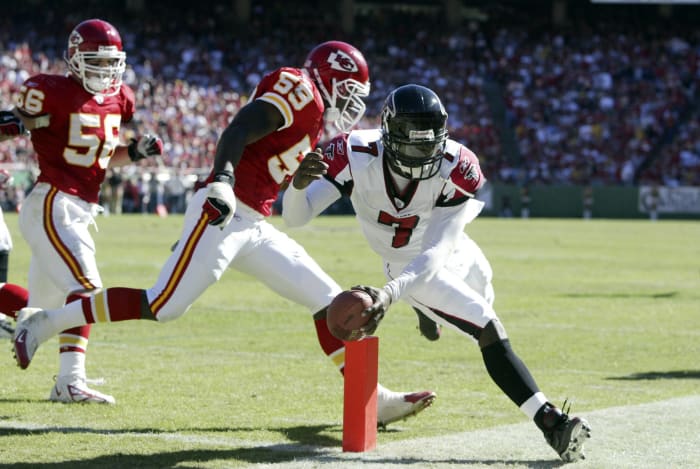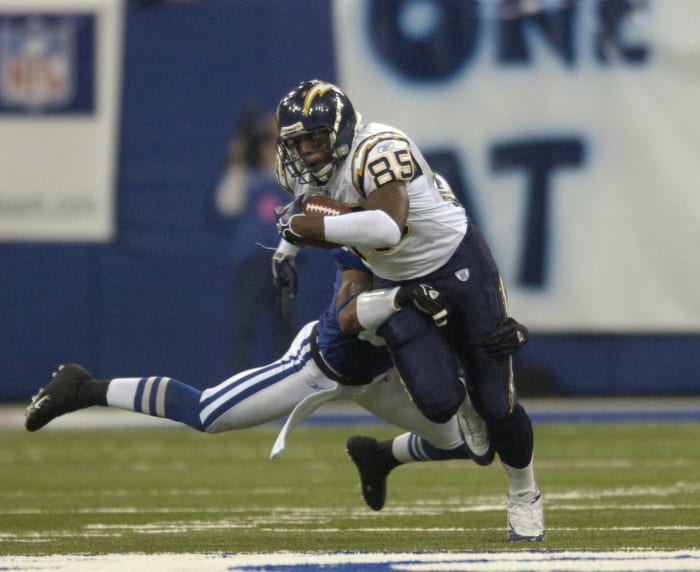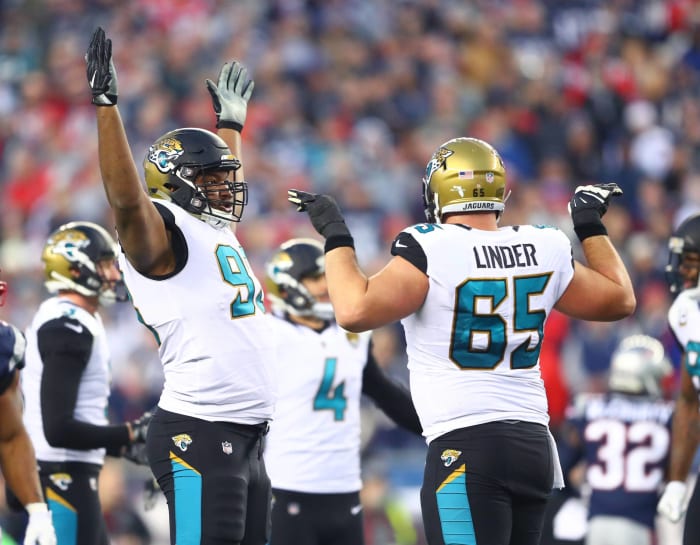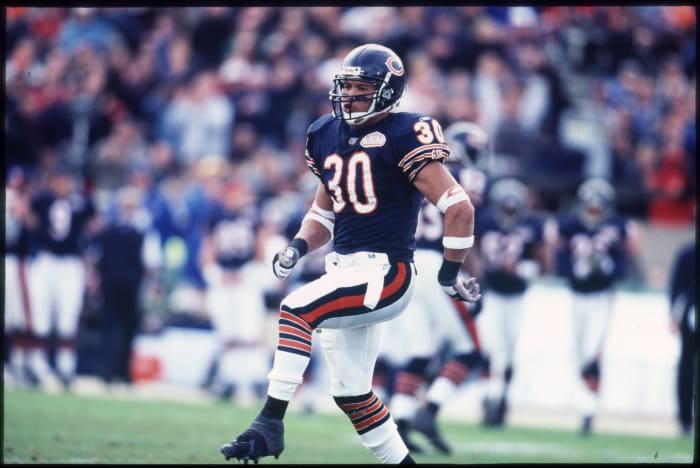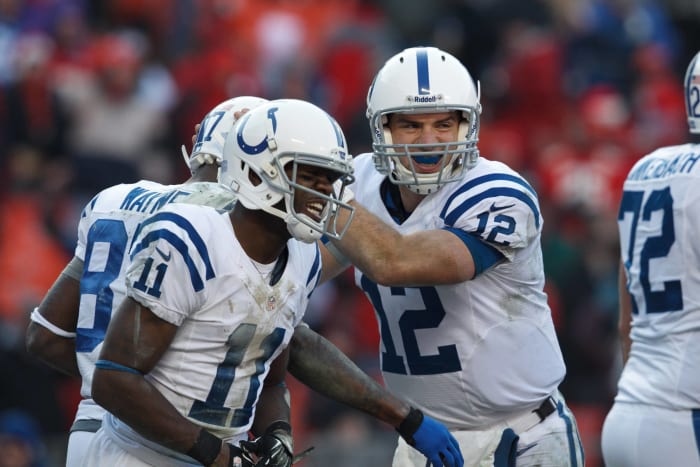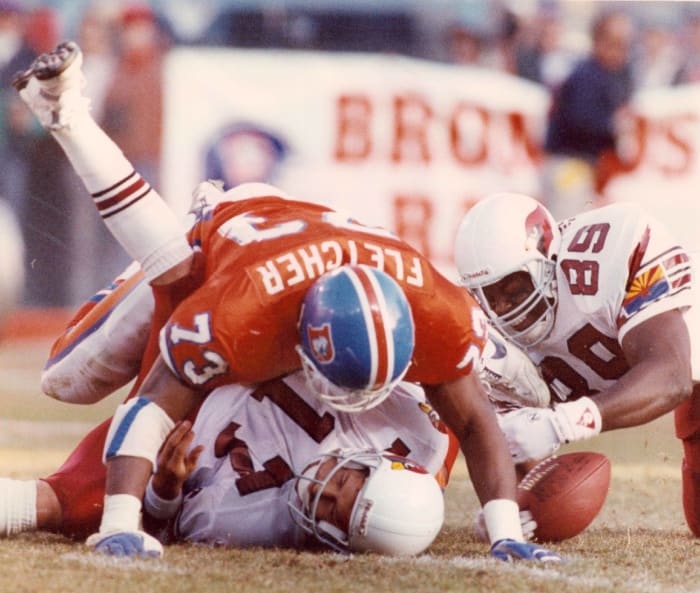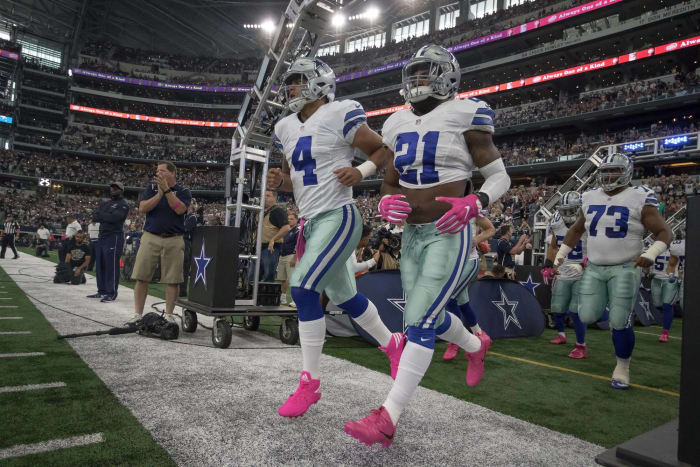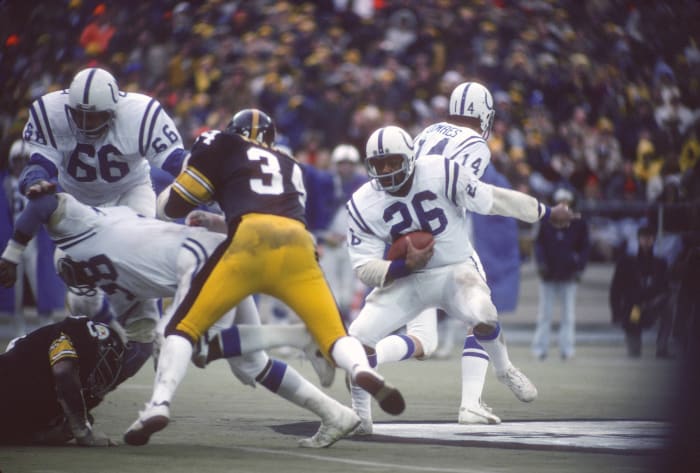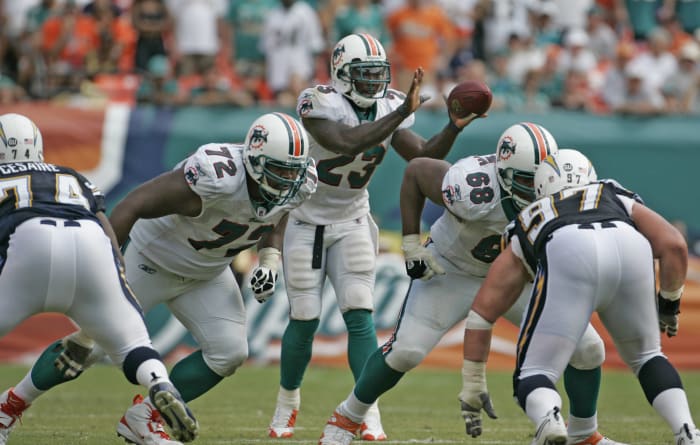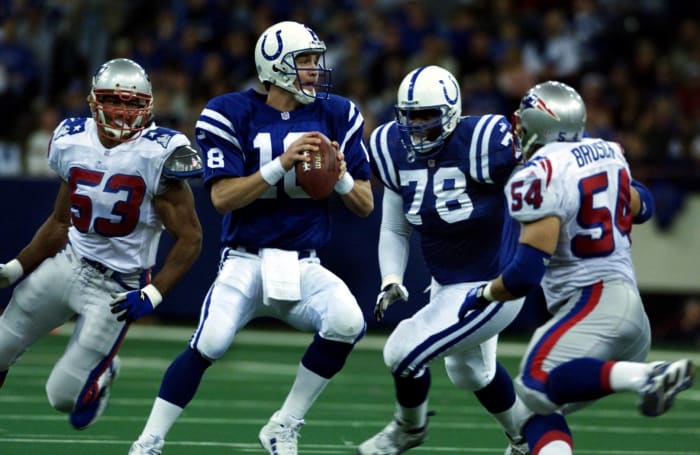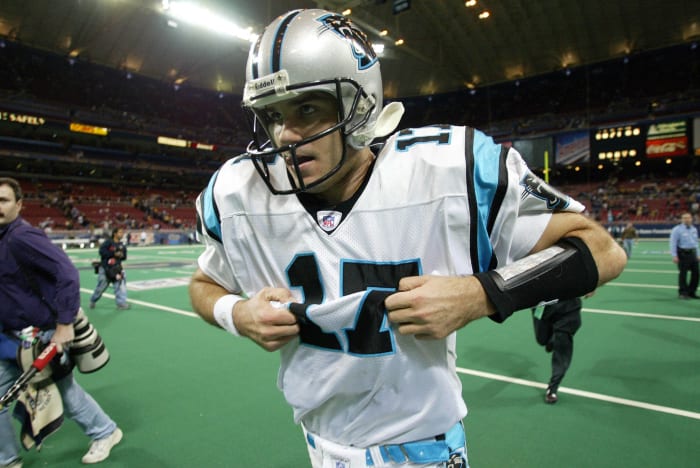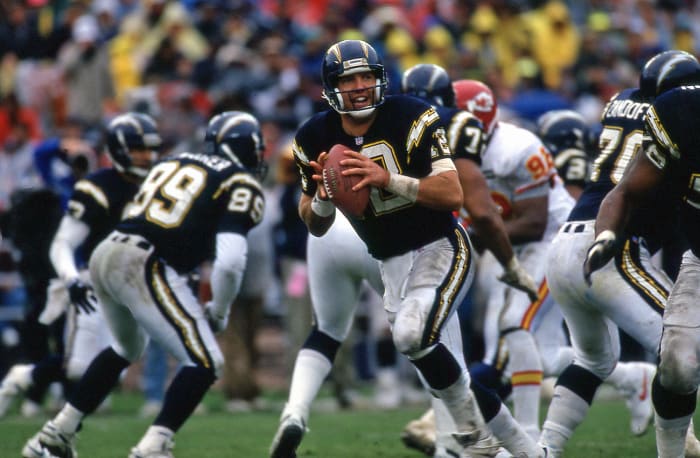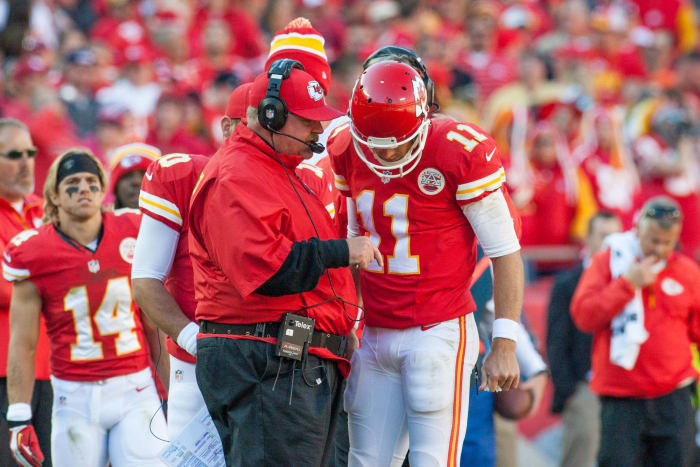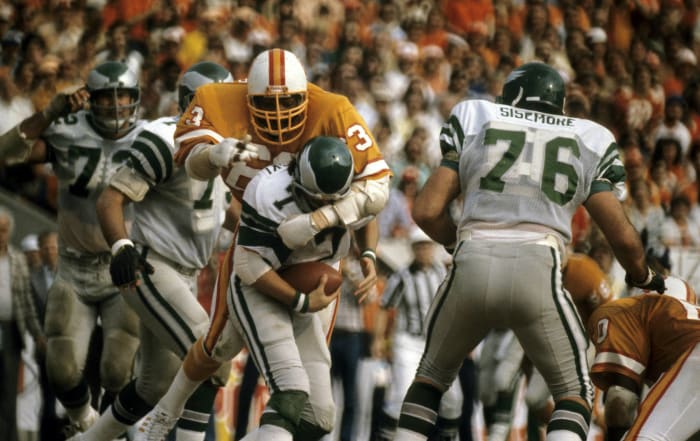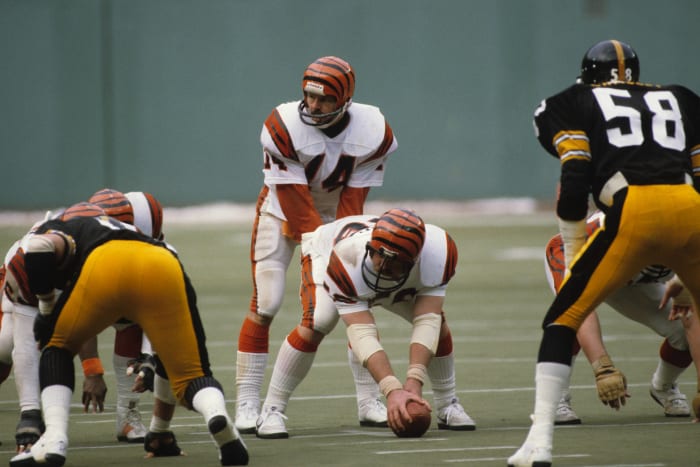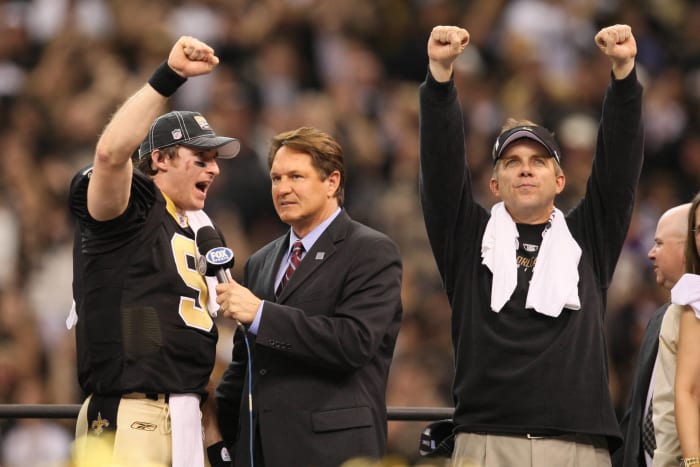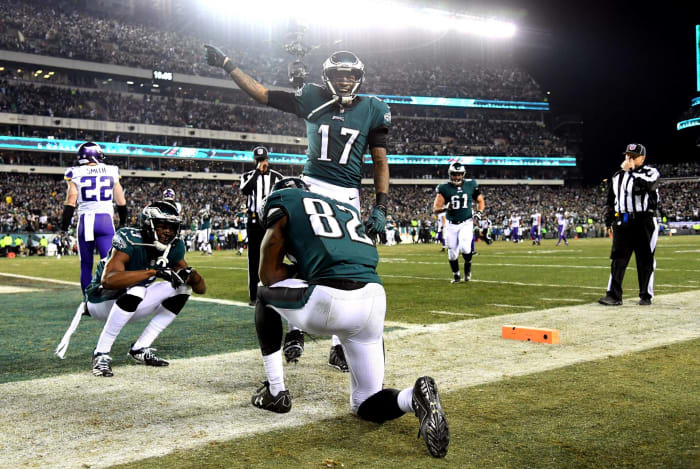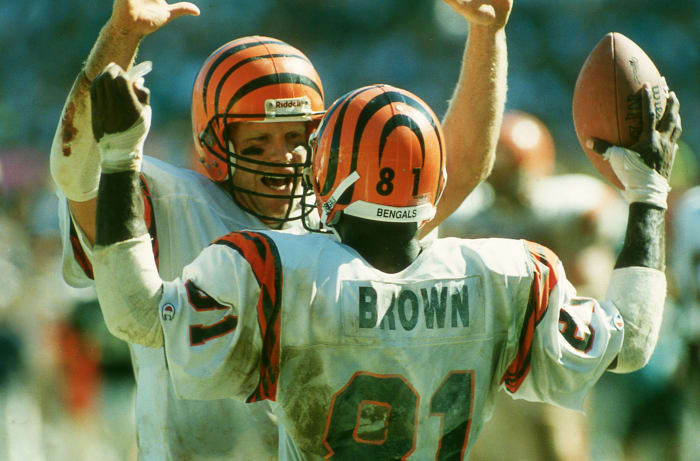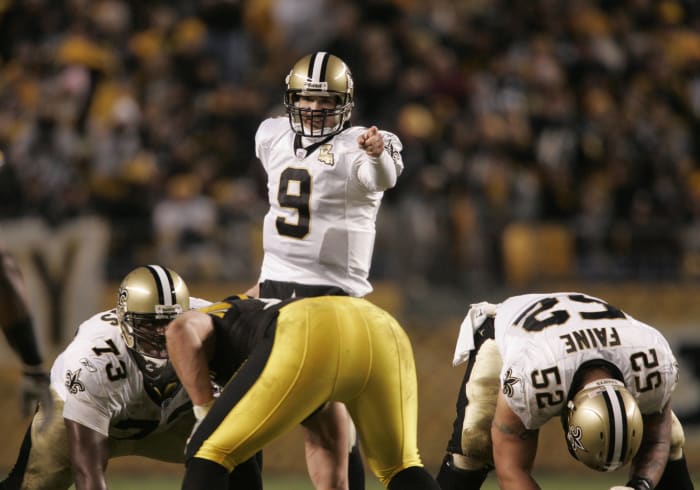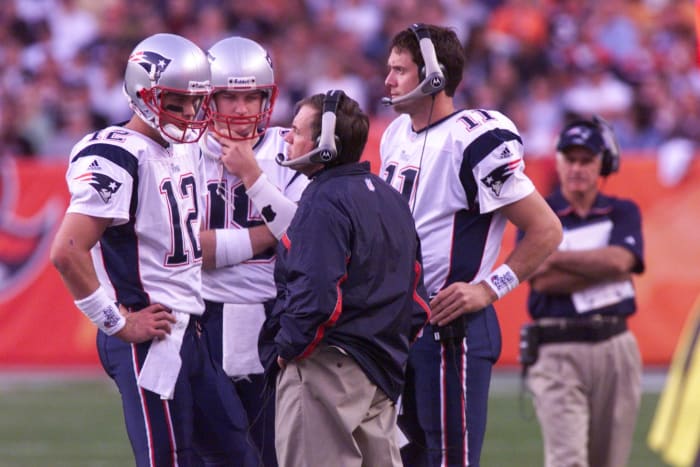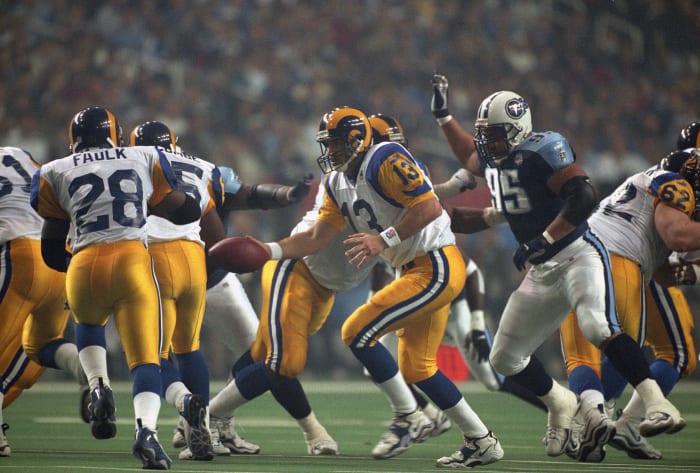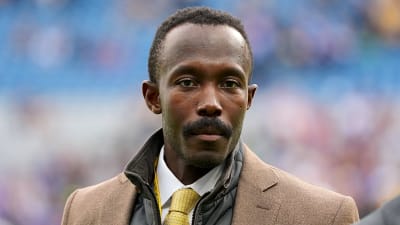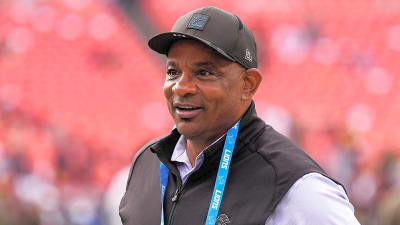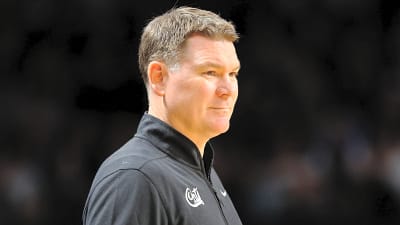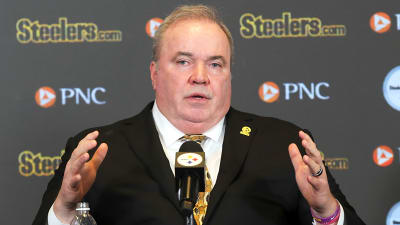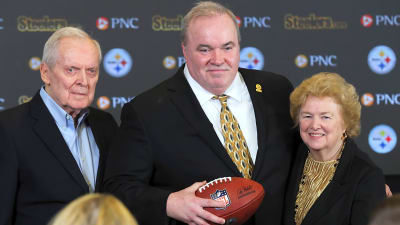While going from last place in a division to first was once infrequent, the NFL sees it happen nearly every year in the modern era. Here are the most notable worst-to-first seasons -- judged by impact and degree of improvement -- since the modern divisional setup began in 1970.
Kirby Lee-USA TODAY Sports
This now seems like 10 years ago, but the Texans rode the talents of J.J. Watt and Deshaun Watson to rebound from a 4-12 season and make the playoffs. Watt and Watson missed most of the 2017 slate, in which the team went 1-9 without its future-star QB. The '18 Texans became the fifth 0-3 team to make the playoffs in a non-strike season and remain the only one to do so in the 21st century. Watson returned from his rookie-year ACL tear to make the Pro Bowl, despite taking a staggering 62 sacks, and Watt landed his fifth All-Pro nod with a 16-sack season. Houston won nine straight after its bad September to finish 11-5.
Adam Wesley/USA TODAY NETWORK-Wi
The NFC's top 2018 rebound ended up producing Coach of the Year honors for rookie HC Matt Nagy, who -- for one season, at least -- revived Chicago's offense and had Mitchell Trubisky playing effectively. While this foundation came crashing down soon after, with 2017 first-rounders Watson and Patrick Mahomes lapping Trubisky quickly, the Bears improved from 5-11 to 12-4 and snapped a seven-season playoff drought. The Bears' trade for Khalil Mack transformed Vic Fangio's defense from good to excellent; the three-All-Pro unit led the league. Unfortunately, Cody Parkey's "Double Doink" became this team's defining moment.
Bettmann/Getty Images
Mostly dreadful since their Bert Jones-era contender stretch wrapped by the late 1970s, the Colts hit a valley in 1986 when they started 0-13. Indianapolis made an oddly timed Ron Meyer hire late that season. His history with the NFL's best running back at the time proved pivotal in 1987. A three-team trade sent Eric Dickerson to Indianapolis on Halloween night. Dickerson, who played for Meyer at SMU, notched another 1,000-yard season in '87. This was not a dominant team; it went 9-6. But the Colts ranked first defensively and won the AFC East for the first time since 1977. This turned out to be a one-off. Several more lean years commenced.
George Gelatly/Getty Images
The pre-salary cap era was not conducive to worst-to-first vaults, raising the Packers' degree of difficulty. They missed the playoffs in their first four post-Vince Lombardi seasons but rallied to go 10-4 under Dan Devine. After a 4-8-2 1971 season, Green Bay beat three of 1972's other seven playoff teams to win the NFC Central despite Fran Tarkenton's Vikings return. A ground- and defense-oriented team, the Packers nearly received 2,000 combined rushing yards from John Brockington and MacArthur Lane. They lost to eventual NFC champion Washington in Round 1. This was the last non-strike-season Packer team to make the playoffs until 1993.
Larry W. Smith/Icon Sportswire
While this was one of the worst teams to make a conference championship game, the Falcons did rebound from a 5-11 record in 2003 to go 11-5 in Michael Vick's fourth season. A Madden curse casualty in '03, having suffered a broken leg that preseason, Vick returned to bedevil defenses in '04. The electric QB rushed for 902 yards, and Warrick Dunn delivered the third of his five 1,000-yard seasons. These Falcons, however, benefited from a down NFC bracket that housed two 8-8 teams. DVOA slotted them 19th. The team did not make the playoffs again until Matt Ryan's 2008 arrival.
6 of 25
20. 2004 San Diego Chargers
John Sommers/Icon Sportswire
This season led to the formation of two contenders and notable changes in the NFL record book. The Chargers acquired Philip Rivers to one day succeed Drew Brees, who had not shown franchise-QB form to this point. Brees changed that in 2004 when he teamed with LaDainian Tomlinson and ex-Kent State hoops star Antonio Gates to lift the Bolts from 4-12 in 2003 to 12-4 in '04. Gates and Tomlinson combined for 31 TDs under Marty Schottenheimer, who resurrected a third franchise. The Bolts endured a wild-card loss, but Brees' emergence ended up gifting the Saints a legend. Rivers powered this Bolts nucleus to four more playoff berths in the 2000s.
Mark J. Rebilas-USA TODAY Sports
The further away we move from this season, the odder it looks. From 2011-20, the Jaguars topped six wins just once. That outlier nearly produced a Super Bowl bid. The Jags loaded up on free agents in 2016 and '17, bringing in the likes of Calais Campbell, Malik Jackson, and A.J. Bouye to join homegrown talent and form "Sacksonville" -- DVOA's No. 1 defense. This group propped up Blake Bortles, who helmed a middling offense to a 10-6 record -- after a dreadful 3-13 2016 season -- and two playoff wins. The Jags won a shootout over the Steelers and had the Patriots on the ropes, but nearly everyone involved with this run is now elsewhere.
8 of 25
18. 2001 Chicago Bears
Icon Sports Media
The Bears' lack of success in the years before and immediately after this season adds intrigue, but this was not exactly a fluky 13-3 team. After going 5-11 in 2000, Dıck Jauron's team delivered one of the soundest defensive seasons in modern NFL history. This defense's 12.7 points per game figure ranks 11th in the 16-game era's 43 seasons. Brian Urlacher, D-tackle Ted Washington, and safety Mike Brown earned All-Pro honors; Brown pick-sixes won back-to-back midseason overtime games. The NFC Central champions swept Tampa Bay but could not overcome a limited offense. En route to the first of four straight NFC title games, the Eagles eliminated the Bears.
9 of 25
17. 2012 Indianapolis Colts
Jeff Moffett/Icon Sportswire
The Colts' 2011 season and the Broncos' subsequent rise illustrated Peyton Manning's value, but Indianapolis' quick ascent revealed the talent the team drafted. After Manning's neck-injury year submarined the Colts to 2-14, No. 1 pick Andrew Luck restored relative order quickly by lifting Indy to 11-5. DVOA hated this Colts team, slotting it 25th, and it ranked outside the top half in points scored and points allowed. Luck and Reggie Wayne, on a team absent a reliable run game, dragged the Colts to a wild-card nod. The Luck years produced a few good seasons, even if injuries overshadowed them.
Denver Post via Getty Images
Entrants in three of the 1980s' final four Super Bowls, the Broncos endured a full-on hangover -- following a 55-10 demolition at the 49ers' hands -- in 1990 by going 5-11. However, a similarly constructed squad rebounded to go 12-4 a year later. Denver's defense led the way back, backing John Elway and sending three players -- safeties Steve Atwater and Dennis Smith and front-seven spork Karl Mecklenburg -- to the Pro Bowl. Gaston Green succeeded a disgruntled Bobby Humphrey, rushing for 1,000 yards. An Elway-led divisional-round comeback over the Oilers to reach the AFC championship game is this team's legacy.
Matthew Pearce/Icon Sportswire
While the Cowboys going from 4-12 in 2015 to 13-3 (featuring a Week 17 loss sans full starter participation) is deceiving due to Tony Romo having missed most of the '15 season, Dak Prescott's debut began Dallas' next run seamlessly. No. 4 overall pick Ezekiel Elliott surpassed 1,600 rushing yards and did not win Offensive Rookie of the Year. That honor went to Prescott, who kept the QB gig once Romo returned to full health. The Cowboys' All-Pro-laden O-line operated in high gear, and the Packers needed an Aaron Rodgers miracle drive to upend the No. 1 seed in Round 2. This, however, was Dallas' best team of the Dak era to date.
12 of 25
14. 1975 Baltimore Colts
Focus on Sport/Getty Images
Following their Super Bowl V championship, the Johnny Unitas-era Colts swiftly declined. By 1974, they were 2-12. A new Colts cast emerged in the mid-1970s, and the Bert Jones-piloted team went 10-4 -- after a 1-4 start -- in 1975 to start a mini-run. Seizing AFC East power from the Dolphins, the Colts became one of the 1970s' few worst-to-first teams after hiring Ted Marchibroda. While the offense-oriented coach steered Jones' rise and a Pro Bowl season from running back Lydell Mitchell, the Colts' "Sack Pack" D-line -- keyed by John Dutton and Fred Cook -- hounded QBs. The Steelers routed the Colts in the opening round and did so again in 1976.
Gary Rothstein/Icon Sportswire
While this team did not win a playoff game or come particularly close, it both made the playoffs after a 1-15 season and expanded NFL playbooks. The Dolphins unveiled their Wildcat formation in a seminal Week 3 thrashing of the Patriots, a 38-13 win in which Ronnie Brown and Ricky Williams combined for 211 rushing yards, and continued to have success using the formation during this 11-5 season. Although Tom Brady's Week 1 injury opened the door for Miami to win the AFC East, the Dolphins rallied back from 2-4 to make the playoffs. This booked August addition Chad Pennington's second Comeback Player of the Year award.
14 of 25
12. 1999 Indianapolis Colts
Matthew J. Lee/The Boston Globe via Getty Images
Peyton Manning set the table for a lengthy Colts run by leading this 3-13 to 13-3 flip. After setting an NFL record with 28 rookie-year INTs, the prolific superstar progressed quickly and made the first of his 14 Pro Bowls. The Colts swapped out Hall of Fame running backs, trading Marshall Faulk and surprising most by drafting Edgerrin James over Ricky Williams. James earned All-Pro acclaim as a rookie. With Marvin Harrison joining Edge on that squad, the Colts' "Triplets" years began in '99. The Colts' starters went 13-2 but could not stop the eventual AFC champion Titans in the divisional round.
John Gress/Icon Sportswire
Adrift at quarterback for a bit, the Panthers took a flier on Saints backup Jake Delhomme. The two-year, $4 million deal proved a seminal investment. After 37-year-old starter Rodney Peete faltered in Carolina's opener, Delhomme took the reins and kept them for the rest of the 2000s. The Panthers improved from 7-9 in 2002 to 11-5 in John Fox's second season, when they upset the Rams and Eagles to advance to Super Bowl XXXVIII. A sound defense and Steve Smith's breakout year expedited the Panthers' rise, and Delhomme went toe-to-toe with Brady in Houston. A botched John Kasay kickoff ended up costing Carolina dearly that night.
16 of 25
10. 1992 San Diego Chargers
Owen Shaw/Getty Images
These Bolts remain the only 0-4 team to make a playoff field, giving hope to slow-starters annually. Hall of Fame GM Bobby Beathard traded for QB Stan Humphries, whom he'd drafted while Washington's GM and the Chargers took off after a brutal September. Despite each September loss coming by at least two scores, the Bolts rebounded from a 4-12 1991 season and snapped a decade-long playoff drought in Bobby Ross' first season. A defense led by all-timer Junior Seau and Leslie O'Neal's 17-sack showing shut out the Chiefs in the first round, toppling a KC team that swept the regular-season series. San Diego was in Super Bowl XXIX two years later.
William Purnell/Icon Sportswire
After the Eagles' 2011 "Dream Team" effort fizzled, Andy Reid was fired after a 4-12 2012 slate. Amid skepticism, the Chiefs hired the offensive guru to clean up their shop -- a month after a 2-14 season and Jovan Belcher's horrifying murder/suıcide. Reid began authoring an all-time second act immediately. He and trade acquisition Alex Smith lifted the Chiefs to 11-5. Buoyed by Jamaal Charles' dominance and six Pro Bowl defenders -- including All-Pro Eric Berry -- Kansas City started 9-0. The Chiefs were not ready to compete with Manning's Broncos and blew a 28-point playoff lead against the Colts, but big things were coming.
Sylvia Allen/Getty Images
Less than two years after snapping a record-setting 26-game losing streak, the Bucs stunned the NFL world by going 10-6 and winning the NFC Central. Tampa Bay improved from its 2-26 beginning to going 5-11 in 1978. John McKay's team then started 5-0 in '79 and rode its snarling defense to promise. Led by Hall of Fame pass rusher Lee Roy Selmon, the 1979 Defensive Player of the Year, the Bucs ranked first defensively. They closed out the regular season with a rain-soaked win over the Chiefs, who totaled 80 yards that day. Behind Ricky Bell's big divisional-round effort, the Bucs beat the Eagles to advance to the NFC title game.
George Gojkovich/Getty Images
An injury-plagued mid-career stretch put Ken Anderson's career at a crossroads, but at 32, the accurate quarterback responded with an MVP season. Forrest Gregg's team went 6-10 in 1980 but won the AFC in '81 after a 12-4 campaign. Cincinnati zoomed from 27th in scoring in 1980 to third in '81, dropping 40 on the Chargers in November to make sure the AFC title game occurred in Cincinnati. That proved key, with the "Freezer Bowl" -- the coldest wind chill in NFL history (minus-59 degrees) -- grounding Air Coryell. Former Bengals OC Bill Walsh got the last laugh in Super Bowl XVI, but this was nevertheless a major NFL turnaround.
Rich Gabrielson/Icon Sportswire
Drew Brees came within 15 yards of Dan Marino's single-season record in 2008, but the Saints could not supplement its Canton-bound QB with much on defense. That became a pattern in Brees' prime, but the '09 team fielded an improved defense that helped the Saints start 13-0. They went from 8-8 in '08 to champions, going 13-3 and winning the lone Super Bowl in franchise history. Marques Colston led a deep receiving arsenal, while Darren Sharper set the interception-return yardage record with 376. Tracy Porter's pick-six on Peyton Manning sealed the Saints' win, though they were unable to make it back in Brees' final 11 years.
James Lang-USA TODAY Sports
The Eagles went 7-9 in 2016 but finished fourth in DVOA. That metric turned out to be telling, with the '17 Eagles going 13-3. Carson Wentz was an MVP shoo-in before his December knee injury in Los Angeles, but Philly earned home-field advantage without a 900-yard receiver or rusher. Additions Alshon Jeffery, Jay Ajayi, and LeGarrette Blount were pivotal still, while the Eagles built elite O- and D-lines around Wentz's rookie contract. The Nick Foles reacquisition made the biggest difference in 2017. The free-agent QB2's dominance in the NFC championship game and Super Bowl LII gave the Eagles their first title since 1960.
22 of 25
4. 1988 Cincinnati Bengals
Owen C. Shaw/Getty Images
Seven years after Super Bowl XVI, the Bengals and 49ers' paths crossed again. These Bengals featured Sam Wyche and Boomer Esiason at the controls. After a miserable 4-11 1987, the Bengals rocketed to 12-4 behind a fast-paced offense that laid the groundwork for future no-huddle attacks. Anderson's successor also won MVP honors, and the Ickey Woods-James Brooks tandem combined for 1,991 rushing yards. The Bengals beat both the Seahawks and Bills by two scores in the playoffs, the apex of the "Ickey Shuffle." But Cincinnati's offense totaled nine points in Super Bowl XXIII. And its 16th-ranked defense could not deter Joe Montana in the end.
23 of 25
3. 2006 New Orleans Saints
Jason Cohn/Icon Sportswire
A more dramatic turnaround than the one that put the Saints in Super Bowl XLIV, the 2006 team emerged as a power after a transformative offseason. Months after Hurricane Katrina devastated New Orleans, the Saints hired Sean Payton and beat the Dolphins for Drew Brees. The Saints went from 3-13 to 10-6, with Brees shedding any doubts about his surgically repaired shoulder. Payton turned him into a superstar. Though the ex-Charger delivered better stats later, this was Brees' lone All-Pro cameo. No. 2 overall pick Reggie Bush provided instant impact, and a less equipped defense outperformed 2009's Super Bowl unit to lift the team to the NFC title game.
Dominic Chavez/The Boston Globe via Getty Images
Numbers-wise, this lacks the pop of some other teams' turnarounds. For long-term impact, nothing beats these Patriots' performance. Bill Belichick's first season produced a 5-11 mark, but the team gave Drew Bledsoe a monster extension in 2001. Bledsoe's Week 2 injury came as the Pats fell to 0-2. In came Tom Brady. The 24-year-old afterthought steered the Pats from 5-5 to 11-5 and Super Bowl XXXVI. Per usual, a top-10 scoring defense -- filled with free agents and cogs leftover from the Pats' 1996 AFC title team -- backstopped Brady, and the "Tuck Rule" happened. But given future evidence, it is safe to say this championship season was not a fluke.
25 of 25
1. 1999 St. Louis Rams
Focus on Sport/Getty Images)
A season that will soon play out in theaters (and/or on streaming services) saw the Rams shock the NFL world by riding a backup quarterback to Super Bowl glory. Neither Kurt Warner nor Trent Green factored into the Rams' 4-12 1998 season, the team's ninth straight losing slate, but Green's preseason injury introduced Warner to the masses. The Arena League alum teamed with newcomers Marshall Faulk and Torry Holt, along with Isaac Bruce, to form the "Greatest Show on Turf" and win the first of his two MVPs. The Rams did not beat a playoff team in the regular season but proved their legitimacy that January and added a chapter two years later.

 +
+
